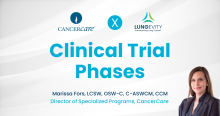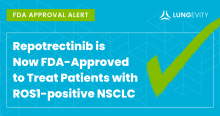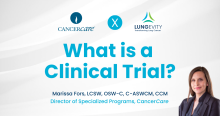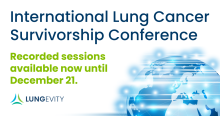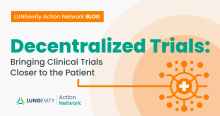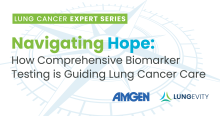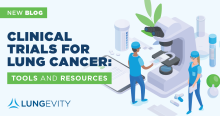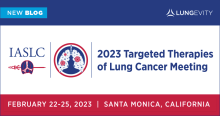Clinical Trial Phases
The four phases of lung cancer clinical trials each serve a different and important purpose. From testing the safety of a new treatment to its effectiveness and long-term outcomes, this short video explains how researchers use clinical trials for new lung cancer treatments. Phases of a Clinical Trial: 1. Safety of the new treatment 2. Does the cancer respond to the treatment 3. Is this new treatment better than the current options 4. Studies the long-term benefits and side effects

